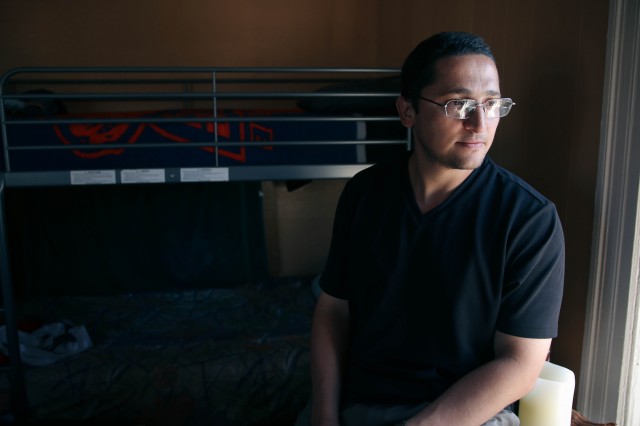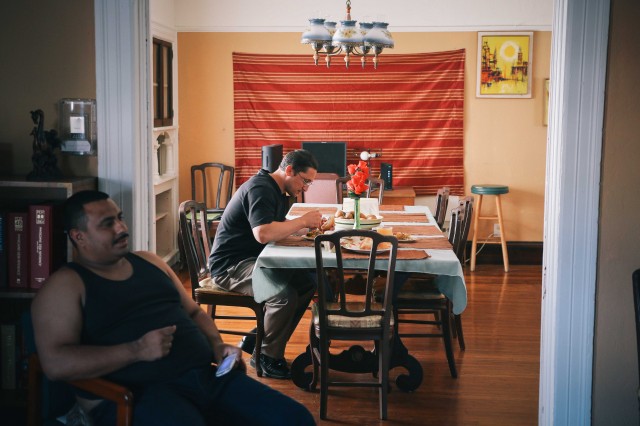
Editor's note: For nearly two decades, people with drug-related felonies were banned for life from getting food stamps, but that’s all changing now. Starting April 15, thousands of former inmates will be eligible for food stamps and other public benefits.
Until then, how do you feed yourself when you get out of prison with no money and little help? As part of our health series Vital Signs, we hear from Aous Jarrar. He was recently released from prison after serving an 11-year sentence for bank robbery. Now, without food stamps, he’s one charity meal away from hunger. We caught up with him as he rushed around downtown Oakland looking for food.
By Aous Jarrar
Walking by that restaurant back there, I smelled some barbecue. Somebody’s really cooking. You know the funny thing? Since I got out, I’ve been really full maybe three times.
It was a shock to me the morning I woke up out here that my breakfast wasn’t ready. I was in prison for a total of 11 years. I took breakfast for granted.
